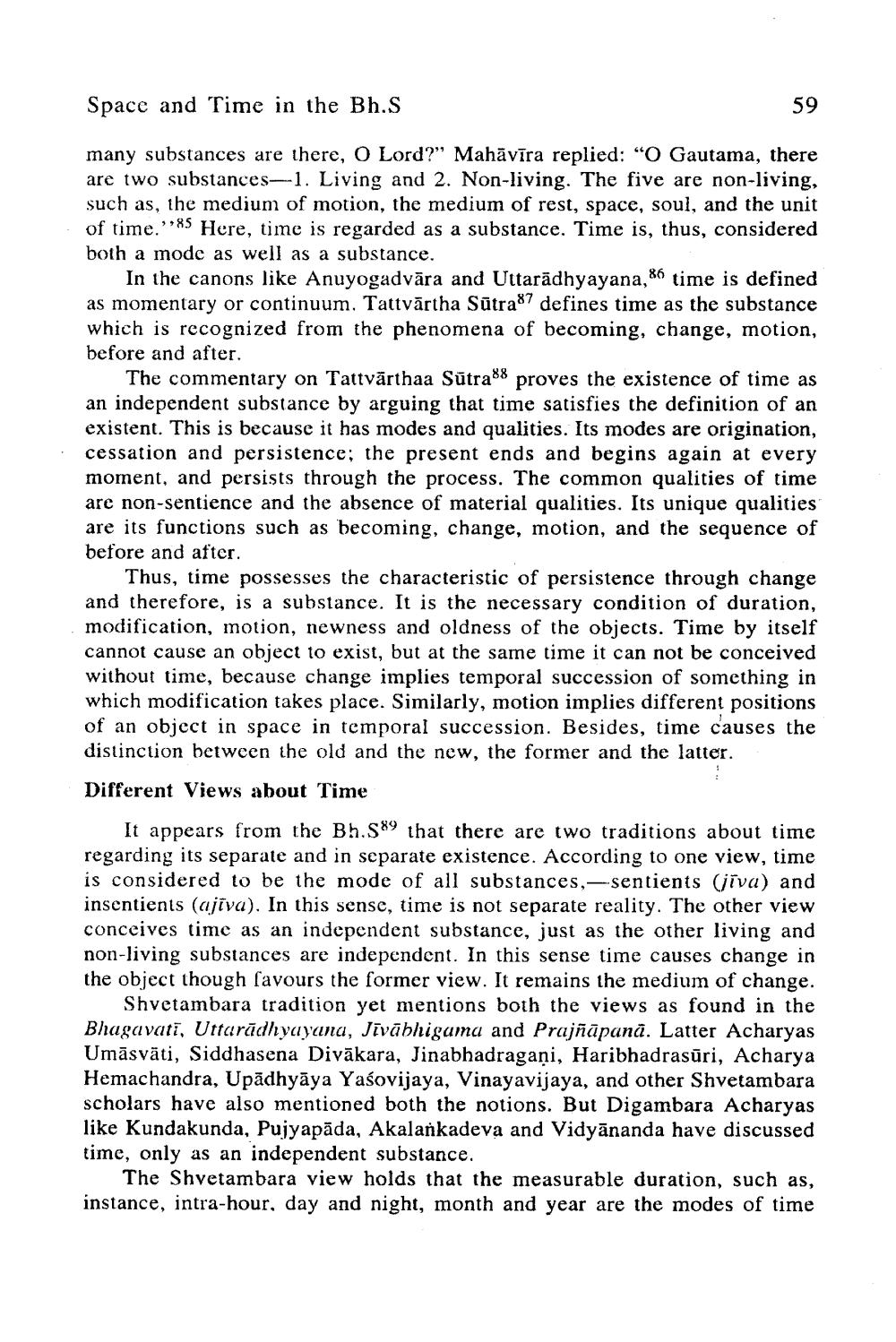________________
Space and Time in the Bh.s
59
many substances are there, O Lord?” Mahāvīra replied: "O Gautama, there are two substances--1. Living and 2. Non-living. The five are non-living, such as, the medium of motion, the medium of rest, space, soul, and the unit of time.">85 Here, time is regarded as a substance. Time is, thus, considered both a mode as well as a substance.
In the canons like Anuyogadvāra and Uttaradhyayana, 86 time is defined as momentary or continuum. Tattvārtha Sūtra87 defines time as the substance which is recognized from the phenomena of becoming, change, motion, before and after.
The commentary on Tattvārthaa Sūtra88 proves the existence of time as an independent substance by arguing that time satisfies the definition of an existent. This is because it has modes and qualities. Its modes are origination, cessation and persistence; the present ends and begins again at every moment, and persists through the process. The common qualities of time are non-sentience and the absence of material qualities. Its unique qualities are its functions such as becoming, change, motion, and the sequence of before and after.
Thus, time possesses the characteristic of persistence through change and therefore, is a substance. It is the necessary condition of duration, modification, motion, newness and oldness of the objects. Time by itself cannot cause an object to exist, but at the same time it can not be conceived without time, because change implies temporal succession of something in which modification takes place. Similarly, motion implies different positions of an object in space in temporal succession. Besides, time causes the distinction between the old and the new, the former and the latter.
Different Views about Time
It appears from the Bh.989 that there are two traditions about time regarding its separate and in separate existence. According to one view, time is considered to be the mode of all substances,-sentients (jiva) and insentients (ajiva). In this sense, time is not separate reality. The other view conceives time as an independent substance, just as the other living and non-living substances are independent. In this sense time causes change in the object though savours the former view. It remains the medium of change.
Shvetambara tradition yet mentions both the views as found in the Bhagavati, Uttarādhyayana, Jīvābhiguma and Prajñāpanā. Latter Acharyas Umāsväti, Siddhasena Divākara, Jinabhadragani, Haribhadrasūri, Acharya Hemachandra, Upādhyāya Yaśovijaya, Vinayavijaya, and other Shvetambara scholars have also mentioned both the notions. But Digambara Acharyas like Kundakunda, Pujyapāda, Akalankadeva and Vidyānanda have discussed time, only as an independent substance.
The Shvetambara view holds that the measurable duration, such as, instance, intra-hour, day and night, month and year are the modes of time




